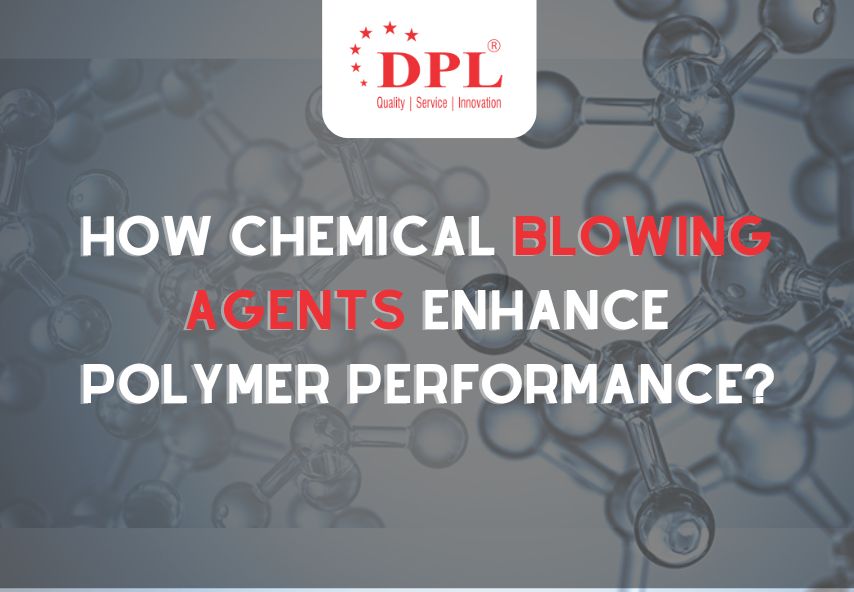The Significance of Polymer Performance –
Polymer performance is at the core of industrial innovation, influencing the functionality and efficiency of countless products. In this context, chemical blowing agents emerge as pivotal contributors, revolutionizing the landscape of polymer manufacturing. These agents, such as the sought-after azodicarbonamide blowing agent, play a crucial role in achieving lightweight, durable, and environmentally conscious polymer products. The strategic incorporation of chemical blowing agents aligns with the quest for superior polymer performance, ensuring products meet the evolving needs of various industries.
Polymers stand as indispensable players in various industries, forming the backbone of numerous products we interact with daily. The performance of these polymers holds a direct sway over the functionality and efficiency of end-use applications, underscoring the ongoing need for continual improvement and innovation.
Understanding Chemical Blowing Agents –
To enhance polymer performance, manufacturers often turn to blowing agents. These agents are compounds designed to introduce gas and create a cellular structure within the polymer matrix during processing. This controlled expansion leads to several advantageous properties in the final product.
Exploring the Benefits of Chemical Blowing Agents –
Chemical blowing agents offer a range of benefits, including reduced density, improved mechanical properties, enhanced thermal insulation, and sound dampening. In this blog, we’ll delve into the fundamental principles behind these agents and how they contribute to elevating polymer performance.
Fundamental Principles of Chemical Blowing Agents –
The Chemistry Behind Chemical Blowing Agents
● Gas Evolution and Expansion Mechanisms:-
Blowing agents release gas upon thermal activation, creating bubbles within the polymer structure. Understanding the chemistry behind this process is crucial for achieving desired performance characteristics.
● Control of Blowing Agent Decomposition:-
Precise control over the blowing agent’s decomposition is essential to avoid undesired side effects. Manufacturers must balance decomposition temperature, gas release rate, and other factors to achieve optimal results.
Key Factors Influencing Blowing Agent Selection
● Polymer Type and Processing Conditions:-
Different polymers and processing methods demand specific blowing agents. Compatibility with the base polymer and the processing conditions ensures successful integration and desired performance enhancements.
● Environmental Considerations:-
As sustainability gains prominence, choosing blowing agents with minimal environmental impact becomes crucial. Eco-friendly options contribute to a more responsible and sustainable manufacturing process.
Enhancing Polymer Properties through Chemical Blowing Agents –
Lightweighting and Density Reduction
- Enhanced Mechanical Performance:-
By introducing cellular structures, material density is effectively reduced without sacrificing mechanical strength. This results in products that are both lightweight and durable, a particularly advantageous trait in applications within the automotive and aerospace industries.
- Improved Fuel Efficiency and Sustainability:-
Reduced weight translates to improved fuel efficiency in transportation, contributing to sustainability goals and aligning with environmental regulations.
Thermal Insulation and Energy Efficiency
- Increased Heat Resistance:-
Through the utilization of chemical blowing agents, a polymer’s heat resistance is elevated, broadening the spectrum of potential applications in high-temperature environments.
- Lower Energy Consumption in Applications:-
Elevated thermal insulation not only curtails energy consumption across diverse applications but also renders products more energy-efficient and cost-effective.
Improved Sound and Vibration Dampening
- Noise Reduction Capabilities:-
The cellular structure introduced by blowing agents acts as a sound barrier, contributing to noise reduction in products like automotive components and building materials.
- Enhanced Comfort and Safety:-
Reduced vibrations and noise not only enhance comfort but also contribute to safety by minimizing distractions and improving the overall user experience.
In conclusion, the strategic use of chemical blowing agents is pivotal in advancing polymer performance across diverse industries. Manufacturers, including the best PVC blowing agent manufacturers in India, continually explore innovative solutions like azodicarbonamide blowing agents to meet evolving demands. As the industry progresses, a focus on sustainable and effective blowing agents will be paramount for achieving optimal polymer performance.

